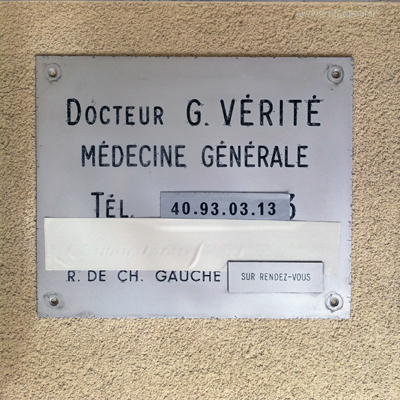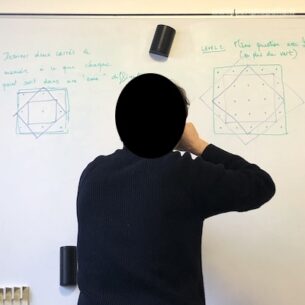Who knows?

Issy-les-Moulineaux, april 2011.
Everybody wants to know the truth. Who is lying ? The unsuspected politician or the unknown housemaid? The international star or the so-called non-person? Lawyers and police departments are directly involved in the making of this kind of cases. They have to clearly identify who did what in singular situations and to ascribe responsibilities. Scientists are another kind of professionals whose work is also especially dedicated to the quest of truth. They have to make some phenomena clear, by highlighting general trends, indeed discovering universal laws. Physicians are also devoted to a somehow similar goal: they have to see through the body machinery. But the quest for truth is never as straightforward as it might be. Just have a look at this plaque. Do we have to trust Dr G. Vérité (“Truth”) or not? For the ones that think truth is a permanent state that reveal itself almost naturally, the plaque is doubtful. All the emendations do not allow them to trust the text. Here, truth goes inevitably with a right or wrong statement. Conversely, for the other ones that think truth is an emergent phenomenon, the plaque is a reliable object. All the corrections show the step by step process that continuously takes place. Truth necessarily goes with the accountability of the whole process.






